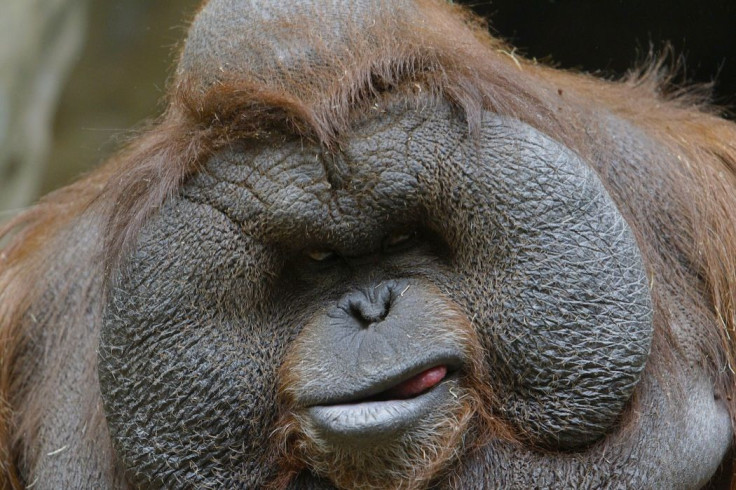Apes, Like Humans, Go Through Mid-Life Crisis

You know the stereotype of the "mid-life crisis", when middle-aged men suddenly become depressed and try to invigorate their lives by getting a new sports car and a younger wife? Recently, scientists have found that the tendency toward midlife discontent isn't limited to people, after discovering that great apes, like chimpanzees and orangutans, also experience a mid-life crisis.
An international group of researchers studied 508 great apes living in zoos and sanctuaries located in the United States, Japan, Canada, Australia and Singapore.
Study authors asked keepers, volunteers, and caretakers who knew the apes well to assess the animals' wellbeing. Observers and other caretakers were asked to fill out a four-item questionnaire to assess the wellbeing of the apes. The survey included questions like the degree to which each animal was in a positive or negative mood, how much pleasure it got from social situations and how successful it was in achieving goals. The survey also asked raters to indicate how happy they would be if they were the animal for a week.
Researchers said that the happiness of the animals was determined by a series of measures adapted from human subjective well-being measures.
The study, published in the journal Proceedings of the National Academy of Sciences, revealed that like humans, the wellbeing or happiness of chimpanzees and orangutans also follows a U shape and is high in youth, falls in middle age and rises again into old age.
The study found that of the chimps and orangutans surveyed, the happiest tended to be the oldest and youngest, and the most dissatisfied tended to be apes in their 30s, leading researchers to suggest that the pattern of human well-being over a lifespan might have evolved in the common ancestors of humans and great apes.
"We hoped to understand a famous scientific puzzle: why does human happiness follow an approximate U-shape through life? We ended up showing that it cannot be because of mortgages, marital breakup, mobile phones, or any of the other paraphernalia of modern life," study author Professor Andrew Oswald from the University of Warwick said in a statement. "Apes also have a pronounced midlife low, and they have none of those."
Researchers noted that the latest findings do not rule out the possibility that economic events or social and cultural forces to not have an effect on the wellbeing U shape in humans.
They also noted that the study was only a snapshot and did not follow any of the apes over time, meaning there could be other factors like early death of the unhappy apes skewing the data.
Nevertheless, researchers said that the latest study highlights the need to consider evolutionary or biological explanations for the mid-life crisis.
For instance, researchers explained that individuals who are satisfied at stages of their life where they have fewer resources might be less likely to encounter situations that could be harmful to them or their families.
"Based on all of the other behavioral and developmental similarities between humans, chimpanzees, and orangutans, we predicted that there would be similarities when looking at happiness over the lifespan, too. However, one never knows how these things will turn out, so it's wonderful when they are consistent with findings from so many other areas," co-researcher Dr. Alex Weiss, a psychologist from the University of Edinburgh, said in a statement.
Frans de Waal, a primatologist at Emory University in Atlanta, Georgia, told Nature that researchers in the latest study should have used a stronger measure of ape happiness like stress hormone levels. However, he said that if the latest finding is real, it could have implications for understanding human mid-life crises.
"Instead of ascribing the middle-age dip to the complexities of professional life or other socioeconomic and cultural factors," he says, "it may well be that certain physical characteristics, hormone levels or emotion-regulation skills play a role," de Waal told Nature.
Researchers explained there may be an evolutionary advantage to experiencing an emotional dip in middle age.
"Maybe evolution needed us to be at our most dissatisfied in midlife," Oswald told Nature. He explains that dissatisfaction and unhappiness can promote change, and influence unhappy adults to act more adaptively like seeking out new mates.
However, researchers noted that any explanation is only speculative, and stressed that if there is a common biological explanation to midlife dissatisfaction between humans and apes, the effects of the crises are filtered through cultural and environmental factors.
Published by Medicaldaily.com



























